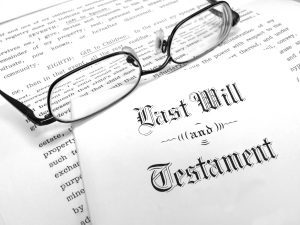Writing a last will and testament is always a difficult undertaking. If nothing else, it requires you to confront the fact that you won’t always be there for your loved ones, and you need to plan for what will happen to them when you are gone. However, there are a few things to keep in mind when you are writing your will, to ensure you don’t leave your loved ones with unnecessary problems. Continue reading “Writing a Last Will and Testament: Five Things to Consider”
Tag: last will and testament
Shortcutting Conflict in Your Will
Unsurprisingly, a person’s last will and testament can be a major source of conflict for any family, even if that family typically gets along well. There can be fights over who gets to keep money, houses, cars, and other valuables, of course, but also fights over precious heirlooms and other things that have emotional value, even if they aren’t worth much monetarily. Fortunately, there are things you can do when you’re writing your will to preempt these kinds of conflicts. Continue reading “Shortcutting Conflict in Your Will”
New Jersey Court Rejects “Equitable Adoption” Argument in Inheritance Case

A Last Will and Testament is Important

Even Single People Need an Estate Plan

Create an Estate Plan to Ensure Your Property Is Distributed as You Wish

Be Sure You Have Advanced Directives in Place

Storing and Maintaining Original Estate Planning Documents

Authorization for Final Disposition

Should You Contest a Family Members Will?

Continue reading “Should You Contest a Family Members Will?”









